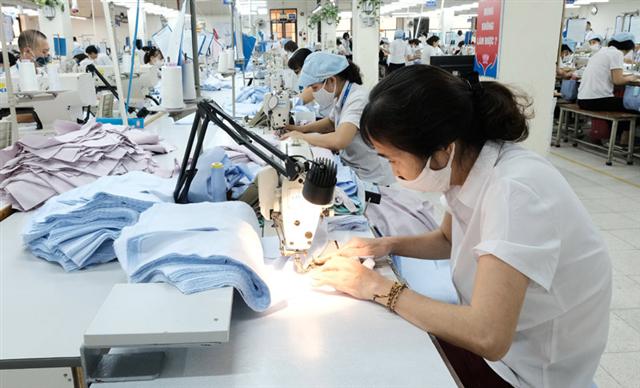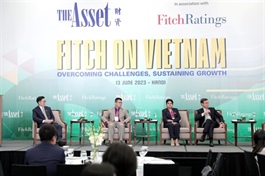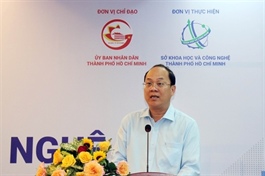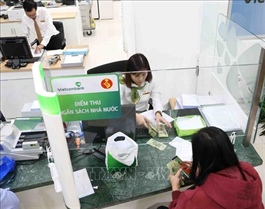Vietnam’s medium-term outlook remains positive: Fitch Ratings
Vietnam’s medium-term outlook remains positive: Fitch Ratings
Fitch has affirmed Vietnam's sovereign credit rating at 'BB' with a 'positive outlook.'
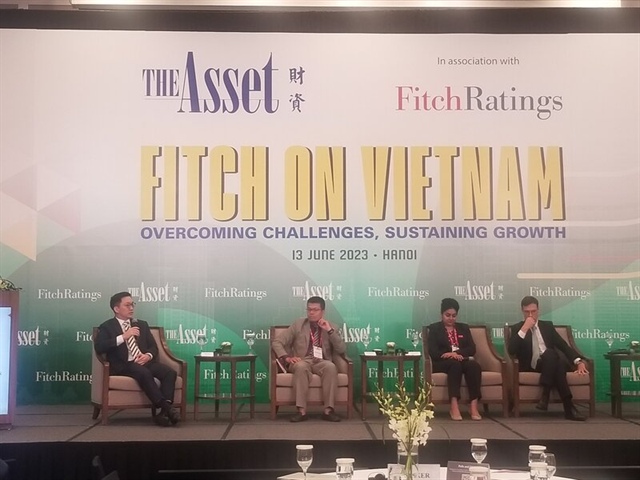 |
Vietnam's medium-term growth prospects remain firm on the back of FDI inflows, demographics, and external liquidity.

Overview of the conference. Photo: Hai Yen/The Hanoi Times |
Sagarika Chandra, director of Asia-Pacific sovereign ratings at Fitch Ratings, asserted at a conference on the country's growth challenges today [June 13].
Sagarika referred to Fitch's recent affirmation of Vietnam's sovereign rating at 'BB' with a 'positive outlook'.
Backing up the assessment, she noted that the country's ability to sustain high growth had narrowed the GDP per capita gap with Vietnam's peers and helped stabilize public debt while maintaining macroeconomic stability.
Vietnam's GDP growth this year is estimated at 5.7% year-on-year, below the Government's target of 6.5%, with agriculture, services and industry, and construction among the growth drivers.
The expansion rate would be among the fastest in the region, although from a much lower base compared with last year's decade high of 8%, Sagrika said.
Sagrika pointed to an improvement in the Government's revenue base, which supports sustainable fiscal consolidation over the medium term.
Meanwhile, there has been "greater confidence in the ability of the macroeconomic policy framework to respond to policy challenges, driven in part by improved transparency," she said.
On the other hand, she noted that a sustained period of higher fiscal deficits could lead to a failure to stabilize public debt in the medium term.
While the country had built up significant foreign exchange reserves of nearly US$100 billion, there was a sharp decline in 2022.
"While this is partly due to interest rate differentials across countries and subsequent capital outflows from Vietnam, a sustained decline in foreign exchange reserves coupled with pressure on the exchange rate could contribute to a weaker net external creditor position," she noted.
Nevertheless, Sagrika expected the reserves to return to $100 billion by 2024, with the country's liquidity ratio remaining positive.
Techcombank CFO Alexandre Macaire also weighed in on the country's outlook, noting that the country's economic growth has been slowing since early 2023 due to high global inflationary pressures.
However, Macaire highlighted Vietnam's ability to maintain macroeconomic stability.
This has resulted in the Vietnamese dong being one of the most consistently valued currencies in Southeast Asia, he noted.
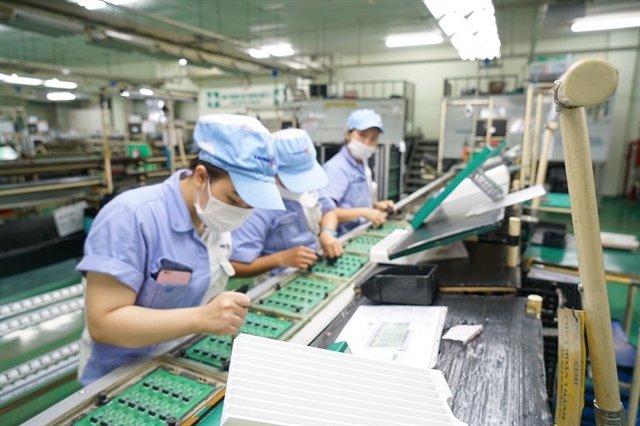
A production line at Katolec Vietnam Corporation in Quang Minh Industrial Park, Hanoi. Photo: Pham Hung |
The Techcombank representative expressed concern about the underperforming trade sector, which could have a major impact on Vietnam's short-term development goal.
Lower-than-expected trade revenue could affect consumption, which is important as consumption accounts for two-thirds of the economy, Macaire added.
Looking ahead, Nguyen Anh Duong, director of the Department of General Economic Issues and Integration Studies at the Central Institute for Economic Management (CIEM), noted that the country's middle class has expanded as a result of economic growth, accompanied by an increase in average income. In addition, there is a growing trend among consumers toward environmentally friendly consumption practices and cashless payments.
"These aspects are crucial for promoting economic development, but it is important to establish more explicit regulations in these areas," Duong said.
Another important factor that positively impacts the economy is the revival of the real estate market.
The Government is currently implementing stricter policies, which may have a short-term impact on the market. However, he noted that this approach aims to ensure long-term sustainable development in the real estate sector.
Historically, real estate has always been an attractive investment avenue for investors.
"Despite the current challenges, I am confident that people will start investing in real estate again once the market stabilizes," Duong said.
However, it will be necessary to implement targeted support programs in the short term, and the government should prioritize establishing a transparent and predictable policy framework for investors. This will facilitate the rapid return of cash flow to the sector, Duong said.
"The Government's commitment to this cause is evident," he concluded.






